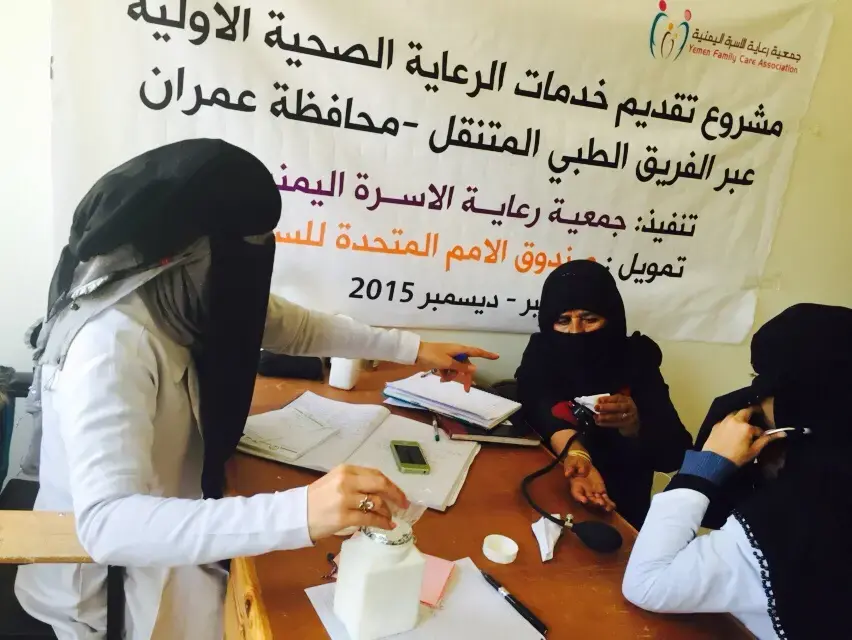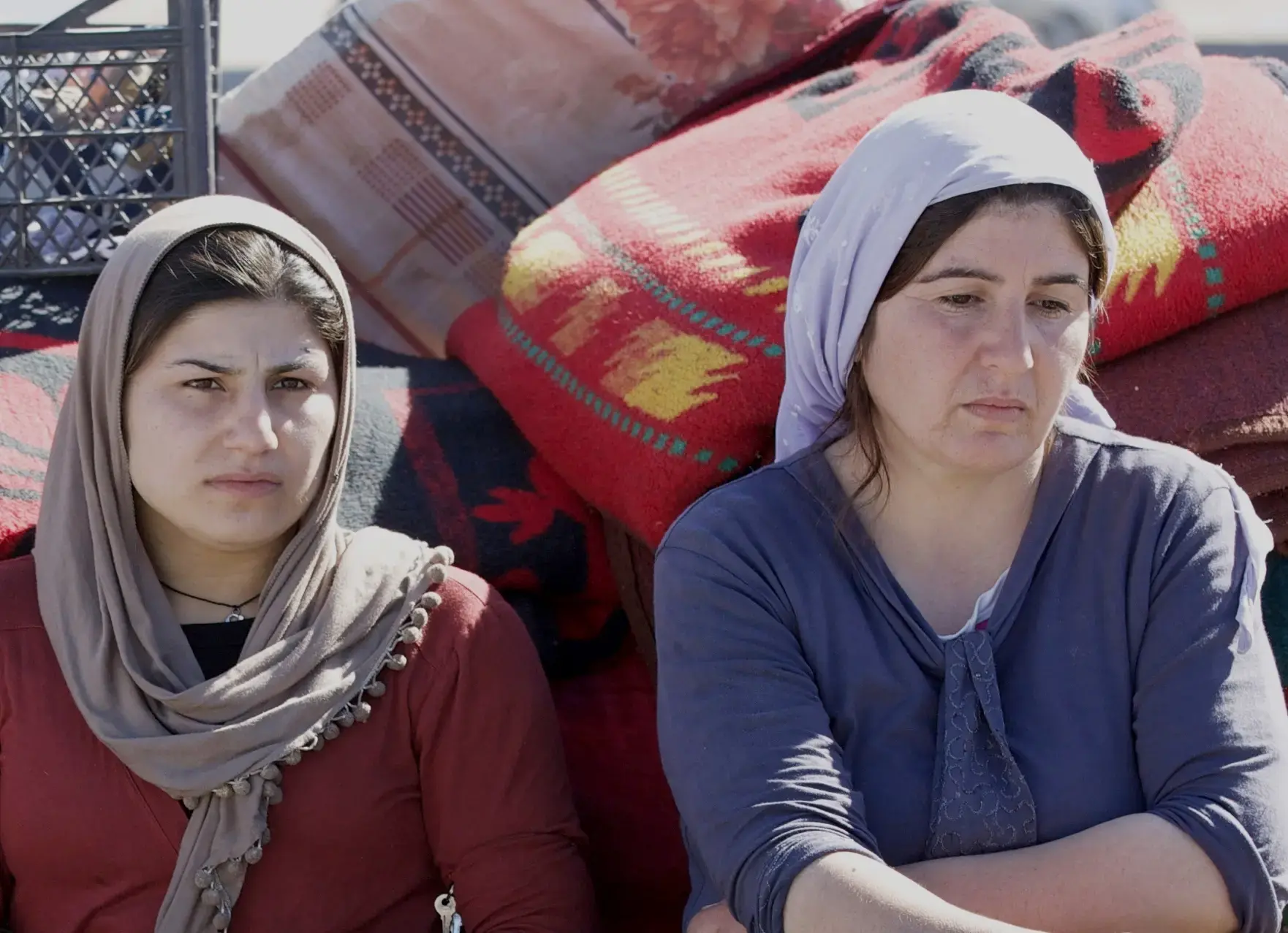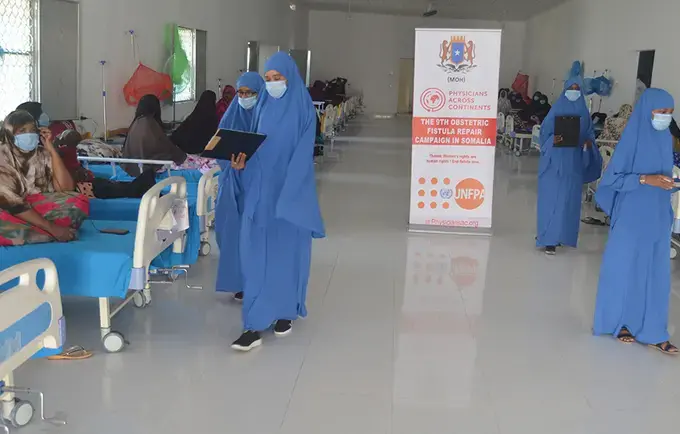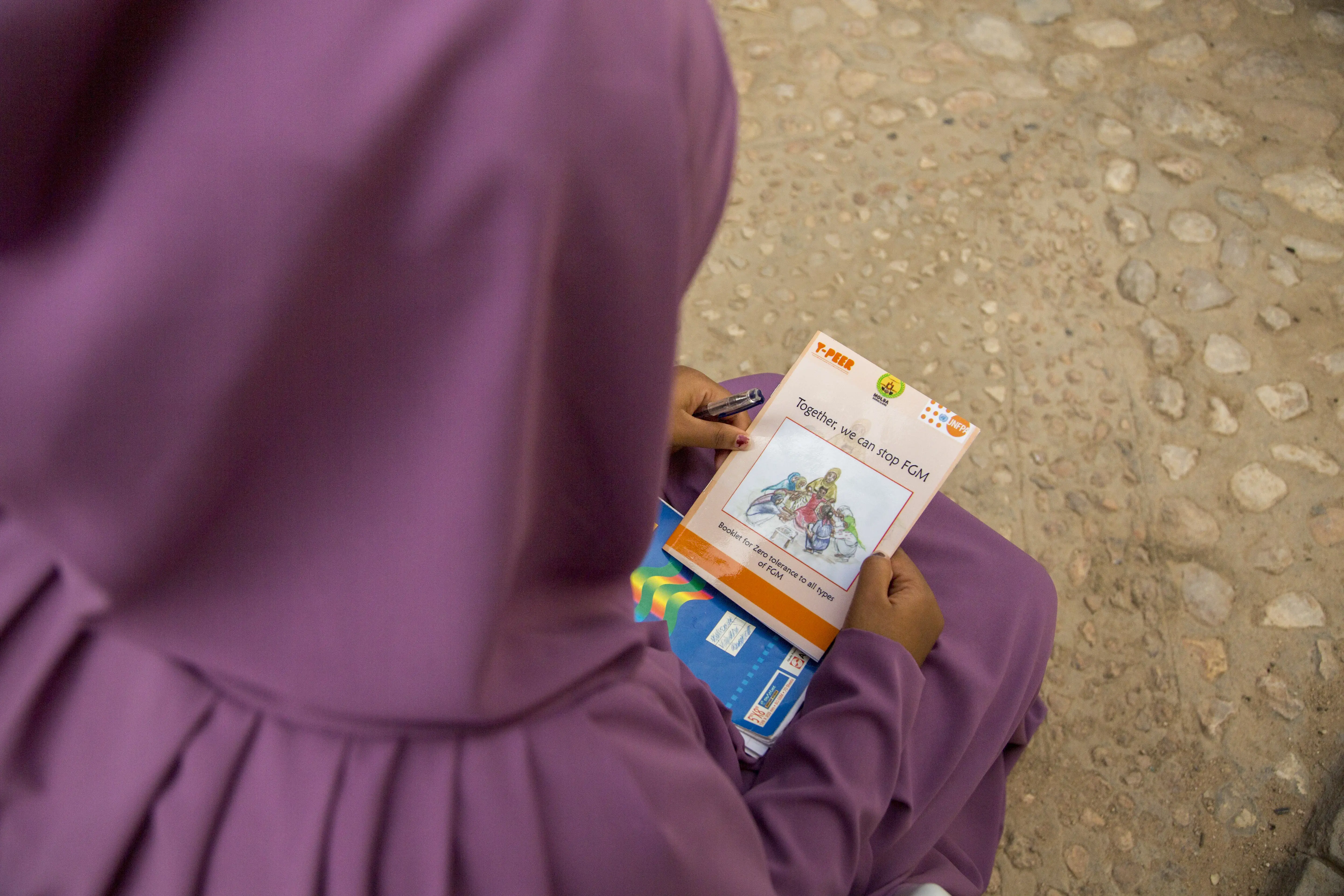Good sexual and reproductive health is a state of complete physical, mental and social well-being in all matters relating to the reproductive system. It implies that people are able to have a satisfying and safe sex life, the capability to reproduce, and the freedom to decide if, when, and how often to do so.
To maintain one’s sexual and reproductive health, people need access to accurate information and the safe, effective, affordable and acceptable contraception method of their choice. They must be informed and empowered to protect themselves from sexually transmitted infections. And when they decide to have children, women must have access to services that can help them have a fit pregnancy, safe delivery and healthy baby.
Every individual has the right to make their own choices about their sexual and reproductive health. UNFPA, together with a wide range of partners, works toward the goal of universal access to sexual and reproductive health and rights, including family planning.
UNFPA’s work in the Arab region
The Arab region is home to more than 400 million people, half of them women and girls, around 100 million of them in reproductive age, so can potentially get pregnant and contribute to the 3.5 children born on average to Arab women. This fertility rate is higher than the global average fertility rate of 2.5 children per woman (2015). Maternal mortality in the Arab region is still high at 156 per 100,000 live births (in 2015).
As the UN agency in charge of promoting reproductive health and rights, UNFPA works in all Arab countries to respond to the reproductive health needs of people, including in situations of conflicts or humanitarian emergencies. In Yemen for example, where 1.1 million pregnant women are malnourished and 2.6 million women and girls risk gender-based violence, the difficulty of access has affected UNFPA’s ability to respond to these huge needs. The Fund was able to reach 438,000 people with reproductive health services, although it had planned to reach one million. In Iraq, UNFPA was the first to provide lifesaving reproductive health services to women and girls displaced by the fighting into camps in new areas in Mosul. Within the Syria crisis, UNFPA continues to work in the country and in neighboring countries with women and young men and women to save lives but also to give young people information and opportunities to grow healthy and empowered. In addition, UNFPA supports some 72 mobile clinics and 150 safe spaces for women and girls both inside and outside Syria.

As a human rights-based organization, UNFPA engages with governments, civil society, donors, development partners and fellow UN agencies to ensure that people, adolescents and older persons included, have access to sexual and reproductive health and are enabled to fulfil their reproductive rights. It conducts field research to contribute to credible recommendations on how to promote gender equality and change social norms. It advocates for the right of young women and men to receive information, skills and opportunities that will enable them to achieve their potential.
Reproductive health and development
UNFPA works to ensure sexual and reproductive health and rights remain at the very centre of development. The International Conference on Population and Development draws a clear connection between reproductive health, human rights and sustainable development. When sexual and reproductive health needs are not met, individuals are deprived of the right to make crucial choices about their own bodies and futures, with a cascading impact on their families’ welfare and future generations. And because women bear children, and also often bear the responsibility for nurturing them, sexual and reproductive health and rights issues cannot be separated from gender equality. Cumulatively, the denial of these rights exacerbates poverty and gender inequality.
Key concerns

This is seen most acutely in developing countries, where reproductive health problems are a leading cause of ill health and death for women and girls of childbearing age. Impoverished women suffer disproportionately from unintended pregnancies, unsafe abortion, maternal death and disability, sexually transmitted infections (STIs), gender-based violence, and other related problems.
Young people are also extremely vulnerable, often facing barriers to sexual and reproductive health information and care. Young people are disproportionately affected by HIV, for example, and every year millions of girls face unintended pregnancies, exposing them to risks during childbirth or unsafe abortions and interfering with their ability to go to school. Adolescent reproductive health is therefore another important focus of UNFPA’s work.
UNFPA also works to prevent and address STIs, which take an enormous toll around the world. More than a million people acquire an STI every single day. Without diagnosis and treatment, some STIs, such as HIV or syphilis, can be fatal. STIs can also cause pregnancy-related complications, including stillbirth, congenital infections, sepsis and neonatal death. They can also lead to pelvic inflammatory disease, cervical cancer and infertility.
A life cycle approach
Reproductive health is a lifetime concern for both women and men, from infancy to old age. Evidence shows that reproductive health in any of these life stages has a profound effect on one's health later in life. UNFPA supports programmes tailored to the different challenges people face at different times in their lives, including comprehensive sexuality education, family planning, antenatal and safe delivery care, services to prevent sexually transmitted infections (including HIV), and services facilitating early diagnosis and treatment of reproductive health illnesses (including breast and cervical cancer).
To support reproductive health throughout the life cycle, services across a variety of sectors must be strengthened, from health and education systems to even transport systems – which are required to ensure health care is accessible. And all efforts to support sexual and reproductive health rely on the availability of essential health supplies, such as contraceptives, life-saving medicines and basic medical equipment.
UNFPA’s work
UNFPA works with governments, other UN agencies, civil society and donors to develop comprehensive efforts to ensure universal access to sexual and reproductive health care. UNFPA advocates for integrating the delivery of these services into primary health care, so it is as readily accessible as possible. This means, for instance, that a woman could address her family planning, antenatal care, HIV testing and general health needs all in one place.
UNFPA also works with governments and communities to strengthen health systems, from improving the financing of health systems to strengthening human resources. UNFPA also works to make sure reproductive health commodities are available where needed, and that a functioning logistics system is in place. The Maternal Health Thematic Fund and UNFPA Supplies are just two examples of UNFPA’s work in strengthening health systems and quality services.
While strengthening national systems, UNFPA also puts special emphasis on increasing access for disadvantaged groups, including young people, the urban poor, rural communities, indigenous populations and women with disabilities.
Updated 16 November 2015.





